One of the best books I’ve ever read about academic writing was Joli Jensen‘s “Write No Matter What“. Ever since I read it, I pondered, “what does ‘constant, low-stakes contact with a writing project‘ mean, in practice?” This notion of regularly contributing to a piece of writing, even if it’s not daily writing, was one of the most impactful statements that Jensen made in her book, perhaps the center piece of her writing about scholarly prose. But I also have wondered, what does Jensen mean by this, and how can this be implemented in practice?
As anybody who reads my blog knows well, I try as hard as possible to write every day. Writing is a muscle, as Jane Green said, and doing so on a regular basis is what has enabled me to produce what I have published. For me, writing is an integral part of my daily routine – I wake up at Ungodly O’Clock (4:00 am) and write, and I guard my dedicated time for reading, research and writing very jealously. I make writing (even if it’s just a little bit) one of my #2ThingsADay. I like doing AIC-CSED combos (reading and systematizing one paper per day into a row of a Conceptual Synthesis Excel Dump to stay on top of the literature the literature). But like any human being, there are days when I can’t write for some bizarre reason (usually, jet-lag or extremely booked up days, where I can’t even wake up early to drop a few words on paper or in a Word document). Or, when I fall sick, or I’m in physical pain that I can’t reduce.
This made me realize that I needed to ponder what, to me, was “frequent, low-stress contact with a project that interests me, in a supportive environment“?
Here are a few ways in which I stay in frequent, low-stress contact with my writing projects. I should say I am lucky to have supportive environments, particularly right now where I can dedicate entire days to research and writing.
1) Writing thoughts about my research or taking notes off journal articles, books and book chapters in my Everything Notebook.
This should be pretty obvious – jotting down thoughts and transcribing ideas are ideal strategies to maintain low-stress contact with a writing project.
2) Highlighting and scribbling a paper, and dropping those notes onto my Conceptual Synthesis Excel Dump or a memorandum or a synthetic note.
Generating these notes prompts me to write, and keeps me in touch with my project.
3) Editing a draft.
While I find editing drafts very hard I do enjoy checking whether I have cited stuff properly a much more amenable and enjoyable activity.
4) Reading across disciplinary and methodological boundaries and live-tweeting my reading notes.
These reading notes often either become blog posts or written material for memoranda.
5) Revisiting my projects’ progress and re-planning my writing deadlines and targets.
This process of reviewing my progress weekly and monthly allows me to shift priorities around, depending on what I’ve received as feedback from editors and journals.
6) Mind-mapping concepts, ideas, connections within my research projects.
Sometimes, the kind of work packet I need is a mind map of a specific field (read my blog post on how I map an entire field of research) or sub-field, or area of the literature. Drawing this mind-map reconnects me with my writing project and reopens avenues for closer examination, and often prompts me to write.
7) Preparing and giving a talk about a paper I’m writing or one that I’ve already written.
This process serves a little bit like a reverse outline strategy as Rachael Cayley calls it. Generating the Power Point slides associated with my talk allows me to see if my thoughts flow freely and whether the argument comes out clearly.
More importantly, while I continue to champion daily writing, I acknowledge that this may not always work, even for me. So I think any written content that allows a researcher to stay in touch with their writing project should be considered #AcWri. Yes, even if that content is within the text of an email to a coauthor, an RA or oneself.
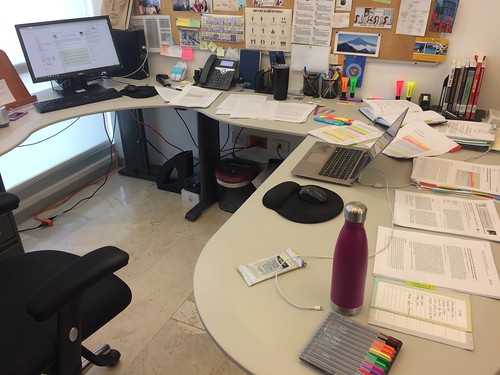
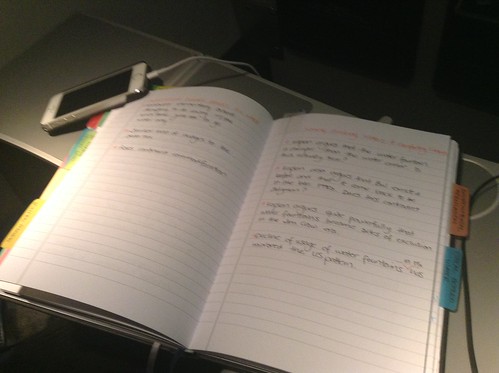
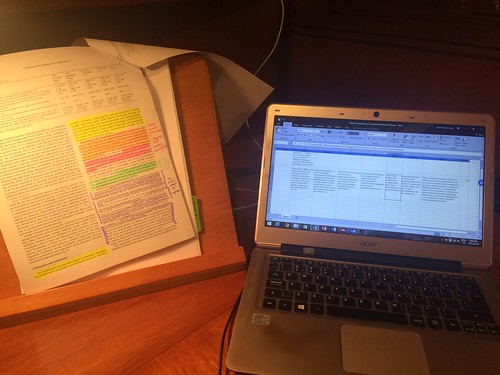
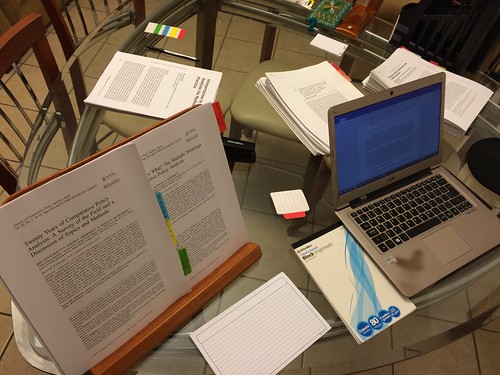
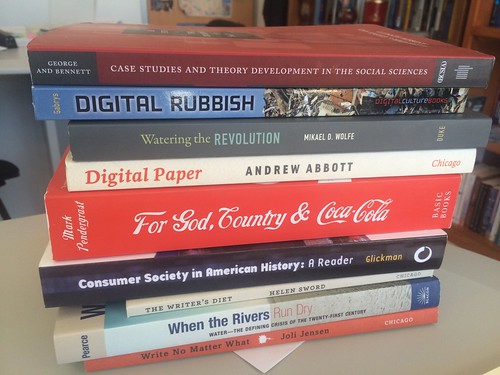
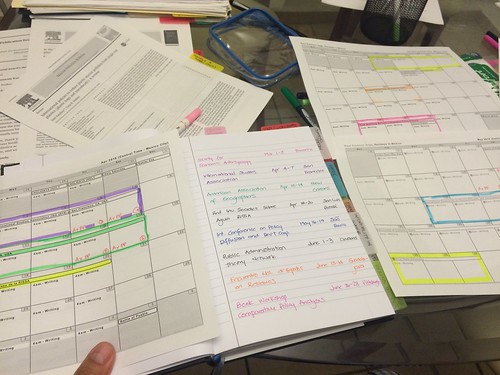
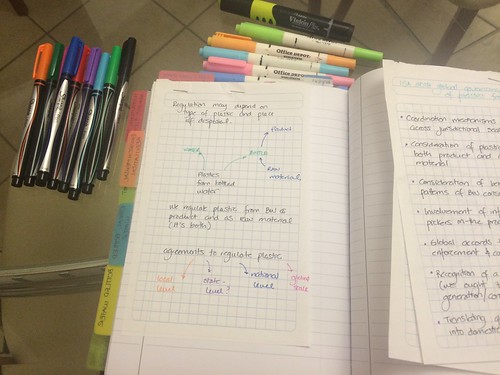
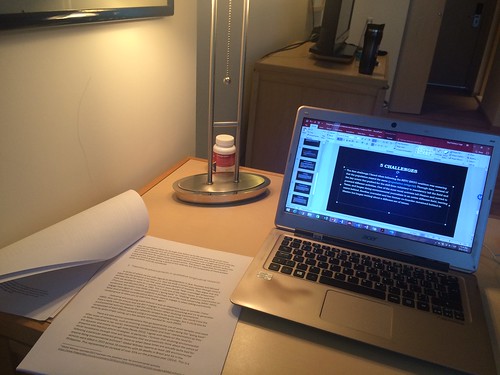

0 Responses
Stay in touch with the conversation, subscribe to the RSS feed for comments on this post.